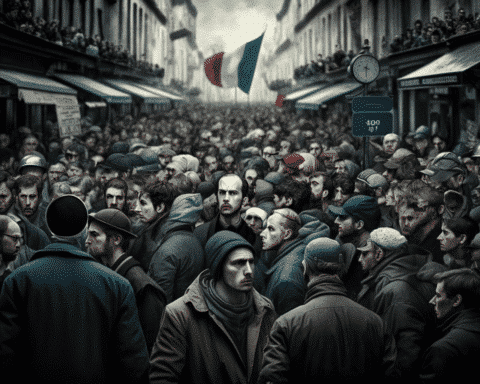The issue of Nazi-confiscated art has been a pressing concern for decades. In 1998, the Washington Principles were published to help resolve this problem, although they are not legally binding.
The recent passing of the “Bachelot” law in France, which allows for the return of 15 named works in French museums, and the proposed three laws that will change inheritance law, have reignited discussions on the issue of restitution and its impact on the art market and the broader international context.
These laws are expected to speed up the process of returning looted works, increase their value, and possibly prompt a new approach to similar issues, such as the Parthenon marbles in the UK.
This year marks the 25th anniversary of the Washington Principles, a non-binding 11-point text aimed at resolving issues with Nazi-confiscated art.
Despite not being legally binding, the Principles have improved provenance research, helped return looted works, and raised awareness about the issue.
In France, a major challenge arises when looted art is found in a state museum, as French law prohibits deaccessioning such works once they have been acquired.
However, the “Bachelot” law was passed last year, allowing 15 named works in French museums, including Klimt’s “Rosier’s sous les arbres,” to be returned to their original owners.
Three more laws, soon to be submitted to the French Parliament, will change inheritance law and speed up restitution.
These laws will benefit the art market by accelerating the process of identified looted works being sold and also increase their value as “clean” restituted works.
However, a recent case in which Christie’s was ordered to return a painting to the heirs of a French banker shows the global impact of the issue.
The proposed French laws could also impact Britain and the longstanding issue of the Parthenon marble.
The 1902 British Museum Act prohibits the return of works from the museum, but the French examples could prompt a new approach in the UK case.
The impact of the proposed French laws is significant, not only in France but also in the broader international context.
They will make the process of returning looted works faster and smoother and increase their value for the art market.
However, the global nature of the problem of restitution and its implications can be seen in the case of Christie’s, where the court ordered the return of a Nazi-looted artwork located abroad.
The French laws could also spark a new approach in the UK case of the Parthenon marble, which has been a contentious issue for generations.
The British Museum Act has been cited as the reason why the marble cannot be returned to Greece, but the French examples could encourage a rethinking of this stance.
The issue of restitution of looted works is complex and multi-faceted, and the proposed French laws demonstrate the ongoing efforts to resolve this problem.
The issue of Nazi-confiscated art and the efforts to resolve it through the Washington Principles and the proposed French laws demonstrate the ongoing importance of addressing this complex and multi-faceted problem.
While there are still many challenges to overcome, including the thorny issue of restitution of human remains and objects looted from African countries, the proposed French laws show a step forward in finding a resolution.
The impact of these laws on the art market and the broader international context highlights the need for continued discussions and efforts to ensure that looted works are returned to their rightful owners.




